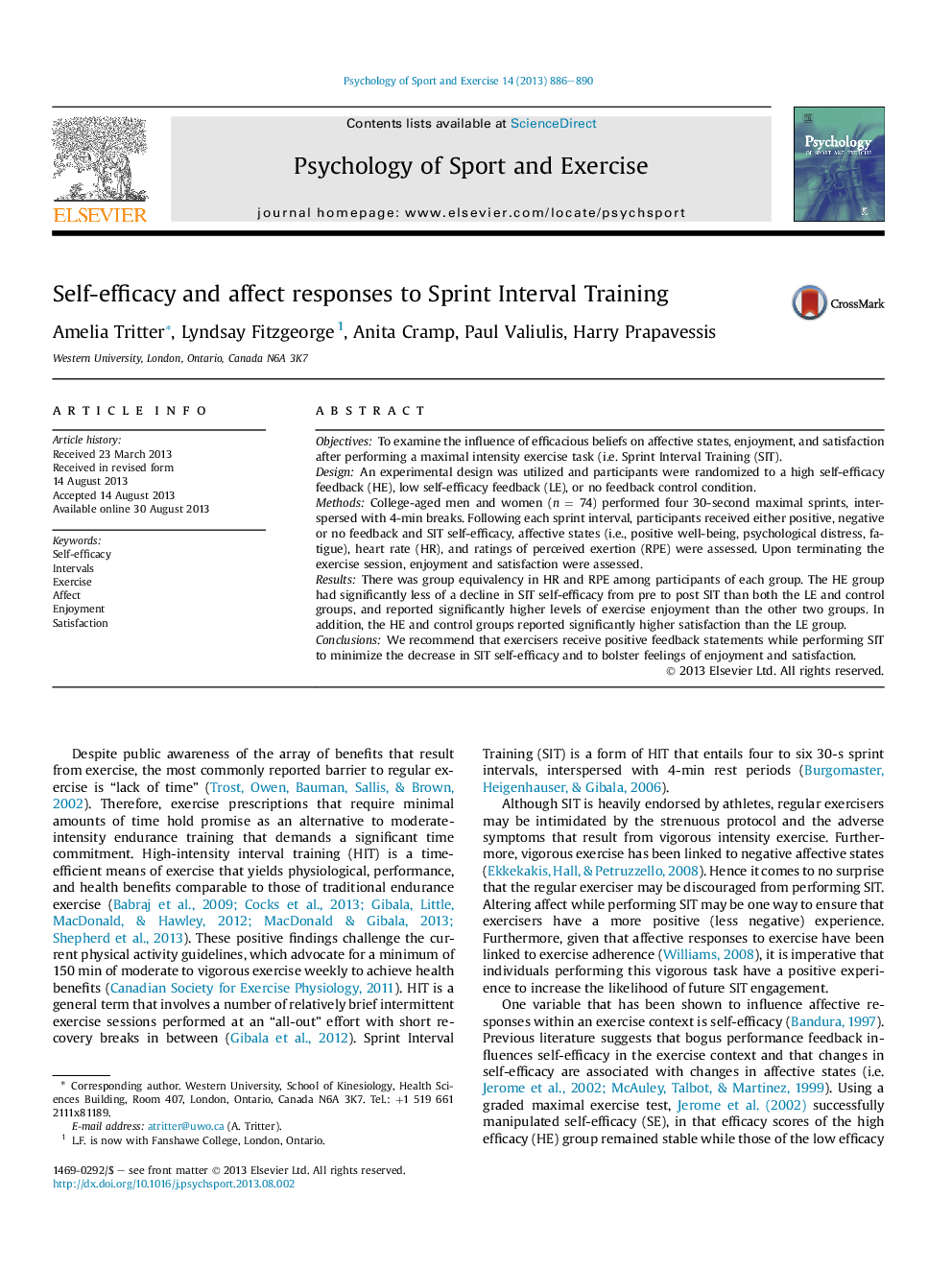| Article ID | Journal | Published Year | Pages | File Type |
|---|---|---|---|---|
| 894489 | Psychology of Sport and Exercise | 2013 | 5 Pages |
•Self-efficacy beliefs towards Sprint Interval Training can be manipulated by feedback statements.•Positive feedback attenuates the inevitable decline in SIT self-efficacy.•Positive feedback can bolster feelings of exercise enjoyment and satisfaction.•These positive affective states may reduce the likelihood of early termination.
ObjectivesTo examine the influence of efficacious beliefs on affective states, enjoyment, and satisfaction after performing a maximal intensity exercise task (i.e. Sprint Interval Training (SIT).DesignAn experimental design was utilized and participants were randomized to a high self-efficacy feedback (HE), low self-efficacy feedback (LE), or no feedback control condition.MethodsCollege-aged men and women (n = 74) performed four 30-second maximal sprints, interspersed with 4-min breaks. Following each sprint interval, participants received either positive, negative or no feedback and SIT self-efficacy, affective states (i.e., positive well-being, psychological distress, fatigue), heart rate (HR), and ratings of perceived exertion (RPE) were assessed. Upon terminating the exercise session, enjoyment and satisfaction were assessed.ResultsThere was group equivalency in HR and RPE among participants of each group. The HE group had significantly less of a decline in SIT self-efficacy from pre to post SIT than both the LE and control groups, and reported significantly higher levels of exercise enjoyment than the other two groups. In addition, the HE and control groups reported significantly higher satisfaction than the LE group.ConclusionsWe recommend that exercisers receive positive feedback statements while performing SIT to minimize the decrease in SIT self-efficacy and to bolster feelings of enjoyment and satisfaction.
